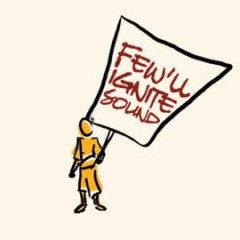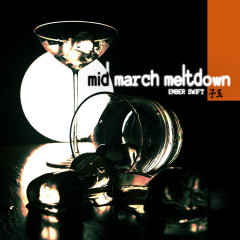Proposals & Explosions
Chinese New Year 2012 has just come and gone. Happy year of the dragon! I want to wish all my readers a happy new year and hope that this is an amazing year for you all–one to remember and one to look back on fondly. It’s fitting that I’m posting this story now as it happened exactly 3 years ago now, at this time of year. It was the year of the Ox (2009) and the story continues…
*************************************************************************************************************************************************
Guo Jian is the worst at keeping surprises as surprises. He always shows me my presents just before my birthday or bounces up and down like a kid who has to pee when he’s got good news and can’t wait to share it. When I forced him to wait until Christmas morning to give me my stocking stuffers this year, he almost exploded.
So, when I deflected his marriage discussions with the “you-haven’t-proposed-to-me-yet” excuse, it’s remarkable to me even now that he never told me what he had been planning.
That year at the end of January, 2009, I went to his family’s house in Shan Dong province for my first official Chinese New Year celebration. Like Christmas, families get together and have big meals (especially dumplings) and do lots of shopping and laughing and gossiping. There is no formal gift-giving, but on New Year’s Eve, all the kids get 红包 hong baos or red envelopes that are filled with money. Then, firecrackers explode at every household until the air is thick with the smoke of them and your ears are ringing.
It was quite an experience.
That was only the third time that I had been to 淄博 Zibo (the city in Shan Dong where he is from) and I was, therefore, still meeting extended family and being shown around as the “new girlfriend” by approving nods and knowing smiles.
It was a bit overwhelming. In Chinese, there’s a word for being overwhelmed which is the compound of the two characters head and big: 头大 touda. I love that word because that’s what it feels like when you’re overwhelmed, like your head is going to roll off your shoulders because its gotten too big to be held up by just your little neck.
This feeling was also brought on not just by the implication that I was going to become a family member, but also by the fact that a different dialect was being spoken around me. My Chinese—which is the dialect 普通话 pu tong hua or Mandarin and not 山东话 shan dong hua, which is what everyone there speaks—was not quick enough to pick up on the different accent and vocabulary words. This dialect is not as different as Cantonese is from Mandarin, but it’s different enough to have left me mostly mute and confused.
On the night before New Year’s Eve, I was alone in the room we were staying in and everyone else staying in the overcrowded two-bedroom apartment disappeared into the other bedroom. I spent the time writing, but was quietly irritated to be excluded from whatever was happening in those chambers. I whined about it to Guo Jian when he came to bed but he just said that it was “family stuff.” I certainly couldn’t contest that.
The next day, New Year’s Eve Day, was a hectic one. By dinnertime, the traffic in and out of the house had been so constant that I had long forgotten anyone’s name and position in Guo Jian’s extended family. His father is one of seven children, his mother one of four, and so you can imagine the relatives!
I had escaped to the kitchen where I was washing some dishes. I was thrilled to be alone in there, actually, since his Mother rarely let me clean up or lift a finger even though she seemed to be wearing the soles off her own feet running around.
I’d spent about twenty peaceful minutes in there when she came in and grabbed me by my elbow in that loving way that Chinese people lead each other around. I thought she was pulling me away from the task and I resisted, saying I was almost finished and it was okay. She said, “No, we have a surprise for you!” and I assumed it was something related to helping me celebrate my first Chinese New Year. She tied a scarf over my eyes and I giggled as she led me through the living room and out onto the glassed-in porch and then straight into the doorframe with a bang rather than out onto the back steps.
I heard laughter at my collision (that wasn’t serious) and she laughed too and then tugged me to the right and led me safely through the doorway to the top of the outdoor stairs.
Then she took the blindfold off. Like the arm of a vacuum reached into my chest, my breath was taken away by the scene before me with a sharp, audible gasp. “Breathtaking” is truly an accurate adjective in these moments.
The yard was filled with candles—perhaps three hundred of them all around—with the majority of them positioned in the inner courtyard in a half-moon shape laid along the ground about ten thick, creating a white arch or rainbow-shaped glow as I looked down from the top of the steps. All of the family members—perhaps fifteen who happened to be present in that moment—were standing along the outside of this arch peering on. At its peak was a white metal tower structure about six feet high lined with little white Christmas lights (although they’re for any season here in China!) and topped with a huge heart-shaped photo of Guo Jian and I framed by the same lights.
This was when I realized that this surprise was not related to Chinese New Year.
Inside the arch on the ground in the middle, and right at the foot of the stairs, was another pile of candles, these in the shape of a giant heart, and standing to the right of that heart was Guo Jian, dressed in traditional Chinese formal wear and holding the largest bouquet of white roses I had ever seen.
In fact, I learned later there were 99 of them, as 九 jiu, the word for 9, is also the same word (in pronunciation, that is) for a “long time.” So, twice the long time or “jiu jiu” (99) roses are often given in romance to symbolize longevity.
I covered my mouth in amazement, was rushed with emotion and just kept saying “Wow” in English over and over again. His Mom motioned for me to go down the stairs with a gentle shove and when I got to the bottom, Guo Jian got down on one knee, handed me the roses along with a ring in its box and said: “你愿意不愿意和我结婚? ni yuanyi bu yuanyi he wo jiehun?”
Little did I know then that this is not the formal way for a man to ask a woman to marry him. He literally asked me “Are you willing to get married (with me)?” but the traditional way to ask is “你家给我吗?ni jia gei wo ma”? This literally translates as “Will you give me a home/family?” and is a direct glimpse at a culture that believes an adult doesn’t have a family/home (and they’re the same word!) until they have gotten married, not to mention the fact that traditionally women were expected to leave their birth families behind while joining the husband’s entourage, thus giving the husband the opportunity to expand his family.
At that time in my language-learning journey, I didn’t know that traditional phrase for a marriage proposal, so it’s just as well. I wouldn’t have been willing to be the definition of his “home/family” as though I am merely about creating a hearth and making babies for the sake of his future. He knew me well enough to know that even then.
So I fumbled and said, “可以 keyi” (which means “can”) and then said “愿意 yuanyi” (which means “willing”) and everyone laughed and cheered while he slipped a perfectly sized and perfectly simple ring on my finger. He had chosen perfectly. I was crying.
I didn’t even know until that moment that I was going to say yes; I just said it. It just felt right. I didn’t think about it. That’s what living with the heart is, I believe. It’s feeling our way through things without the disruption of the mind.
Later, when I called my parents with the din of New Year’s firecrackers rattling the windows in the background, I started to cry again when I told them the news. In response to my tears, my parents asked if I was sure I wanted to marry him and if I was okay or, if I had felt pressured by the big fanfare of it all. I assured them that I was okay but that I was just overwhelmed by the fears and realization and consciousness of what I had just agreed to. My mind was getting in the way.
MARRIAGE?
My head felt huge.
I assured them that I was sure, though. That it was okay.
I laughed at myself crying. They said they were really happy for me. My mind was in a whir, of course, but I got hugs from everyone in the family (a rare treat in a culture that isn’t as affectionate as ours) and I felt taken in like a stray kitten in a strange new world. That sense of safety and belonging was enough to counter my worries.
I was being welcomed into a family and that has renewed significance for me while my family was across the world, so far away.
Turned out that the meeting the night before was all about planning the proposal. For them, this was something that was happening for everyone and not just for the two of us. It was a family thing. I wasn’t being excluded after all. I was actually being included in the most formal way possible in Chinese culture: through marriage.
I remember burying my face in the white roses and drinking in their scent with a sense of fully being present in that moment. That’s what it’s about, after all. Presence. I was present in my love for him. I was present in my acceptance of his proposal. I am here, at present. This is my now.
And this present was worth jumping up and down for. He wasn’t interested in waiting for me to be sure that I had thought through whether I wanted to get married to him or not. He was too impatient for that, too much of a kid who couldn’t keep his plans under wraps for even a moment longer, let alone a year or two.
We scheduled the event for October of 2009. Or, should I say, his parents scheduled it. It had to be an auspicious date, after all.
Afterwards when it had all quieted down, he sighed with relief. “Do you know how hard it was for me not to tell you that we were planning this?” I nodded my head and smiled. He cursed emphatically and added with a smile, “I damn near exploded!”








